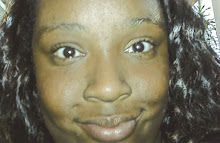Back to the Days of Blackface
A toothpaste brand popular in China is criticized as racially offensive.
Of all the unfamiliar products in a Chinese supermarket, one of the most shocking to American visitors is a toothpaste featuring the logo of a minstrel singer in a top hat, flashing a white smile. Even more shocking: the paste, known as Darlie in English and as Black People Toothpaste in Chinese, is a product of the Hawley & Hazel Group, a Hong Kong–based company established in 1933, which is now owned in part by the Colgate-Palmolive Co.
Darlie used to be called Darkie. According to the book America Brushes Up: The Uses and Marketing of Toothpaste and Toothbrushes in the Twentieth Century, the CEO of Hawley & Hazel saw blackface performer Al Jolson in the U.S. and thought, “Jolson’s wide smile and bright teeth would make an excellent toothpaste logo.” He was right: the firm now claims to be one of the market leaders of toothpaste products in China, Hong Kong, Taiwan, and Southeast Asia.
After Colgate purchased 50 percent of the firm in 1985, religious groups, African-Americans, and company shareholders protested the racially offensive nature of the brand. After more than three years of criticism, Colgate switched the name from Darkie to Darlie and modified the logo to a less crude version of a black man. In 1989 The New York Times quoted the Colgate-Palmolive chairman as saying, ‘’It’s just plain wrong … The morally right thing dictated that we must change [in a way] that is least damaging to the economic interests of our partners.’’
Yet the Chinese name of the product has remained unchanged. And China is not exactly a paradise of racial harmony. While the crucial dichotomy in China is between Chinese and non-Chinese, many blacks face discrimination in the country. A Ghanaian who lives in China and asked to remain anonymous told NEWSWEEK that a prospective employer told him, “We can’t hire you because you’re black.”
Still, the Chinese don’t view the toothpaste’s name as something reprehensible. “To most people in China it wouldn’t even occur to them that Black People Toothpaste is offensive,” says P. T. Black, who researches Chinese consumers. According to the Chinese news site Southcn.com, Hawley & Hazel has even trademarked the name and image and recently sued two companies in Shenzhen for making toothpaste using a similar logo with the words “Black People.” The court ordered the defendants to pay more than $300,000 in damages.
Yet Colgate is a Western company and, as such, “should know better,” says Kwame Dougan, an African-Canadian living in China. Colgate declined NEWSWEEK’s interview requests, instead releasing a statement saying, “There are different perspectives on this issue.” Hawley & Hazel also declined an interview request. Darlie doesn’t exactly advertise its relationship with Colgate; Colgate’s Web site has only two mentions of Darlie, both of which talk about how the brand is driving growth in the Asia-Pacific region. Darlie products examined in China for this story featured no mention of the Colgate label.
“I think that the brand should simply be retired,” says Laura Berry, executive director of the Interfaith Center on Corporate Responsibility, one of the organizations that originally pressured Colgate to fix its Darkie brand. Until then, Darlie smiles on.
Society Hill (thesocietyhill) on Twitter
The Society Hill Is Officially On Facebook!
The Society Hill is now on Facebook! We have our own Facebook page as well as a group page. Get the word out to your friends to be a part of this movement. Sign up today.
Followers
About Me

- Bettine Bowsky
- Born and raised in NYC. Now in VA. I love God first and my family next and then my friends. My main purpose in life is to do justly, to love mercy and to walk humbly before God--in other words, to allow my life to be blessed by God so I can be a blessing to someone else, not just monitarily but by word and deed.